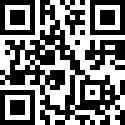Unit 51. Question tags (do you? isn't it? etc.)
(краткие вопросы)
Study these examples:

Have you? and wasn't it? are question tags (= mini-questions that we often put on the end of a sentence in spoken English). In question tags, we use an auxiliary verb (have/was/will etc.).
We use do/does/did for the Present and Past Simple (see also Unit 50):
- ‘Karen plays the piano, doesn't she?’ ‘Well, yes, but not very well.’
- ‘You didn't lock the door, did you?’ ‘No, I forgot.’
Normally we use a negative question tag after a positive sentence:
|
…and a positive question tag after a negative sentence:
|
Notice the meaning of yes and no in answer to a negative sentence:
| You're not going out today, are you? | Yes. (= Yes, I am going out) No. (= No, I am not going out) |
The meaning of a question tag depends on how you say it. If your voice goes down, you aren't really asking a question; you are only inviting the listener to agree with you:
- ‘It's a nice day, isn't it?’ ‘Yes, lovely.’
- ‘Tim doesn't look well today, does he?’ ‘No, he looks very tired.’
- She's very pretty. She's got beautiful eyes, hasn't she?
But if the voice goes up, it is a real question:
- ‘You haven't seen Mary today, have you?’ ‘No, I'm afraid not.’ (= Have you seen Mary today by any chance?)
We often use a negative sentence + positive tag to ask for things or information, or to ask somebody to do something. The voice goes up at the end of the tag in sentences like these:
- ‘You haven't got a pen, have you?’ ‘Yes, here you are.’
- ‘You couldn't do me a favour, could you?’ ‘It depends what it is.’
- ‘You don't know where Karen is, do you?’ ‘Sorry, I've no idea.’
After Let's… the question tag is …shall we?:
- Let's go for a walk, shall we?
After the imperative (Do… / Don't do… etc.), the tag is usually …will you?:
- Open the door, will you?
- Don't be late, will you?
Note that we say …aren't I? (= am I not?):
- I'm late, aren't I?
![агентство Лангуст [переход на главную] Агентство Лангуст [переход на главную]](/pic/logo.gif)

